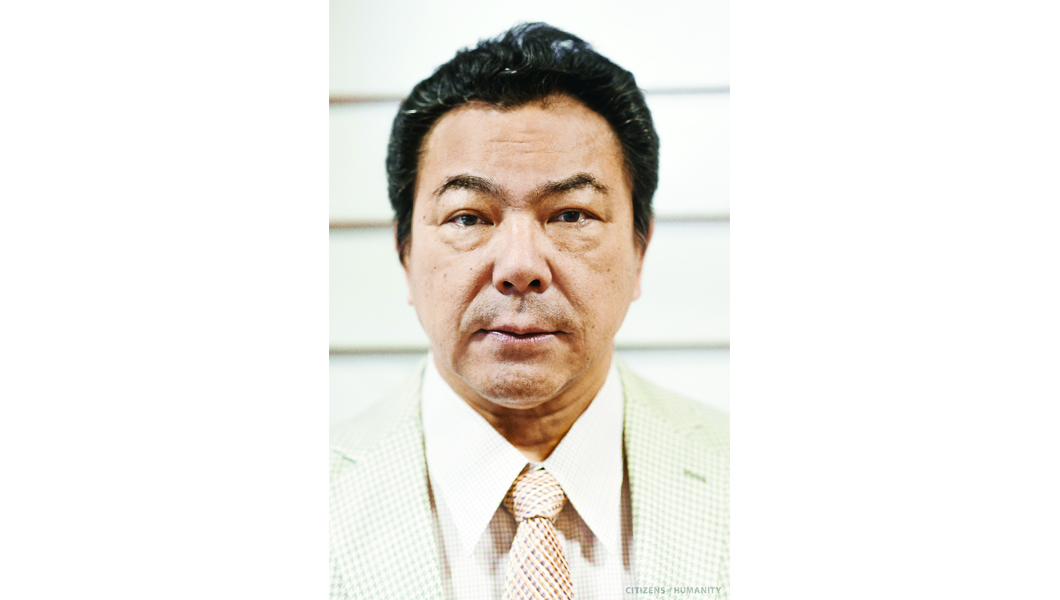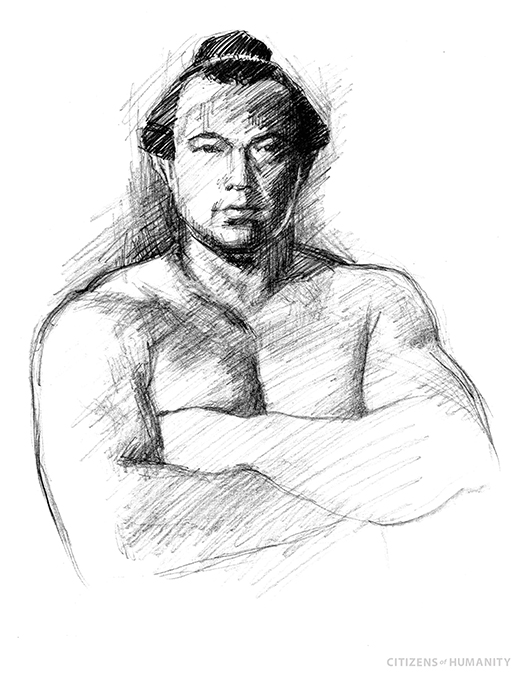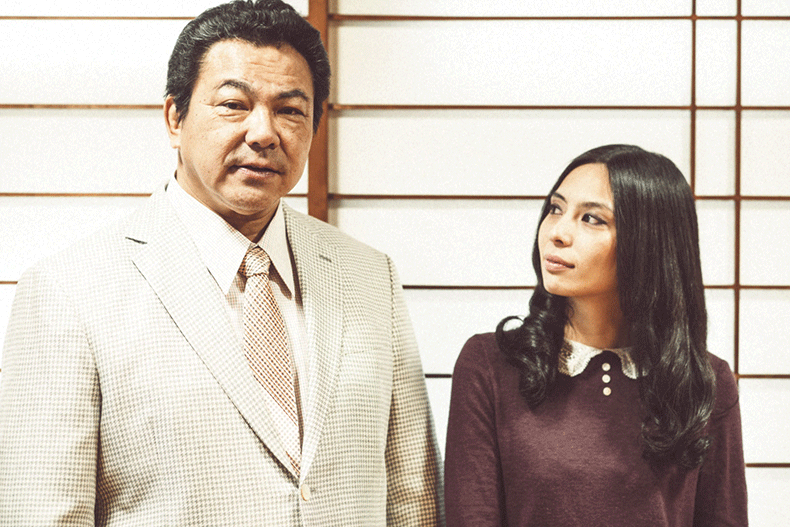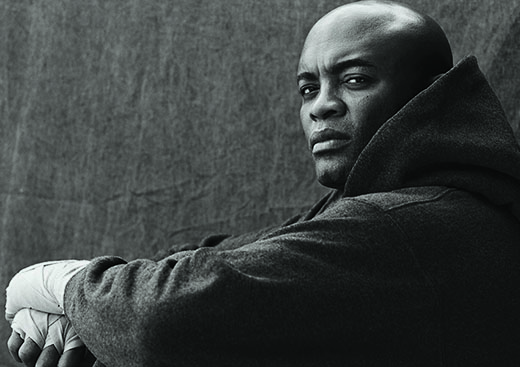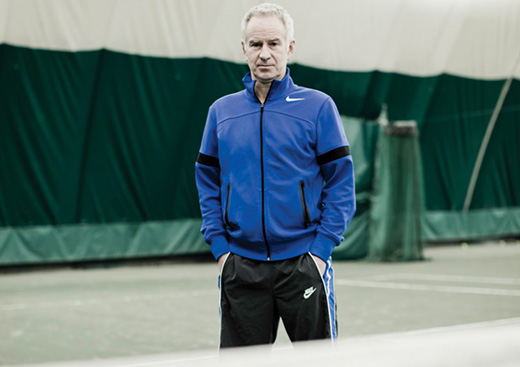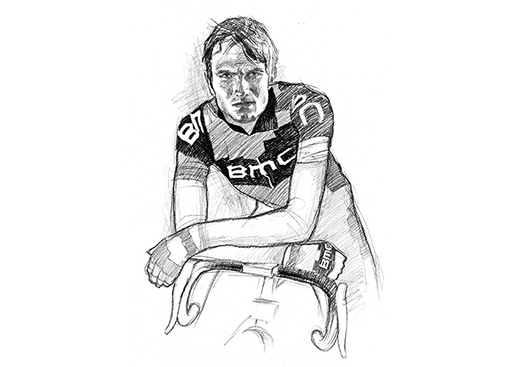It was the snip heard around Japan. When champion sumo wrestler Chiyonofuji Mitsugu cut off his traditional topknot to signify his retirement from the ring in 1991, the whole country was mesmerized by the televised ceremony. For his eldest daughter, Yu Akimoto, it was a moment she’ll never forget. “When you cut your hair back to normal length, we had a lot of snow that day,” Yu tells her father in an interview. Just 8 years old at the time, Yu skipped school for the special occasion. “After you got your hair cut short, I was asked in a television interview, ‘How do you like your papa’s new haircut?’ ” Yu adds. “And I remember that I was very embarrassed. And I said, ‘It looks great,’ and that was broadcast by the show. The next day I went to school and I was teased about saying my dad looks good. I said to them, ‘What is wrong with that?’ I was mad.”
Until this moment, Chiyonofuji hadn’t encountered a pair of scissors in more than 21 years. Born Mitsugu Akimoto on the island of Hokkaido, the young sumo began wearing a topknot at age 15, which marked the beginning of his professional career. Standing 6 feet tall and weighing only 270 pounds (in a ring that often saw competitors 500 pounds or heavier), Chiyonofuji (nick- named “The Wolf” for his intimidating stare) became known for agility in the ring, and the swift moves with which he felled his larger, overbearing opponents.
By the time he decided to retire at the ripe age of 35 (most wrestlers at his level leave the sport by age 30), Chiyonofuji had not only ascended through the ranks to win 1,045 matches and earned the elite status of Yokozuna or “grand champion” but had also won a place in the heart of his nation. Upon retirement, Chiyonofuji took on a new name, Kokonoe Mitsugu, and the role of stablemaster for the Kokonoe Stable (one of the 54 communes where wrestlers live and train, including Chiyonofuji himself). “I liked the training,” Chiyonofuji tells Yu, reflecting on his days in the ring. “There are few people who like training, I think. But most likely, by training I was able to get something back. If you do not get tired doing something, you don’t win.”
“What is the difference in the training between your current disciples and when you were younger?” Yu asks. “It is much less now,” he responds. “There are many wrestlers who have injuries. To develop a build that is not easily injured, you have to do a lot, I think.”
“When [you were] competing, I was small, and I don’t remember everything,” Yu continues. “Mama said it was not a horrible thing to lose, but [you] said you hated to lose,” adds his daughter, who was named after the Japanese character “yu,” which means friendly, and the Japanese word for winner, “yu-sho.”
It’s a work ethic that was passed down to both of the champion sumo wrestler’s daughters, who have forged their own paths in their respective fields. Today, Kozue is a rising star in Japan’s acting and modeling world, while Yu is one of the country’s fashion icons and an accomplished DJ. “Nobody was able to succeed you in the business, since I am a daughter,” muses Yu. “What do you think about that?” “That doesn’t matter at all,” replies her father. “Becoming a wrestler is not easy. But looking at it myself, if I had a son who wanted to do it, that would have been OK. But this is the life I love.”
千代の富士貢
レスリー・マッケンジー:文、チャーリー・ガルシア:写真
鋏の音が日本中に響いた。1991年、大相撲の横綱力士であった千代の富士が引退を表明し、その断髪式はテレビ中継され、横綱の髷が 切り落とされる姿に日本中が心を奪われた。彼の長女である秋元優にとって、それは忘れることのできない光景である。「お父さんが 髪を切り落とした日は、大雪が降っていたのよ」とインタビュー中、優は父親に話しかけた。まだ8歳だった彼女は断髪式当日、父の特 別な日ということで学校を休んだ。「髪が切られた後、テレビのインタビューで“お父さんの新しい髪形はどう?”って聞かれたの。 とても恥ずかしかったのを覚えてるわ。そして“とてもかっこいいです”って答えたんだけれど、それがテレビで放送されたのよ。次 の日学校に行くと、父親をかっこいいと言ったことを友達にからかわれて、“それのどこがおかしいの?”って言い返したわ。とても 頭にきたんだもの」と優は続けた。
断髪式のその日まで、千代の富士は21年以上の間、髪に鋏を入れたことはなかった。千代の富士、秋元貢は北海道で生まれ育ち、15歳 で初めて髷を結って以来、力士としての道が始まった。土俵で戦う力士の多くは、体重が約226kgまたはそれ以上という中で、千代の富 士の身長は約182cm、体重は122kg程度であったが、相手を威嚇するような鋭いにらみから「ウルフ」と呼ばれ、俊敏ですばやい動きを 持ち味に自分より身体が大きく、威圧的な相手力士を倒し、その名が世間に知られるようになった。
横綱レベルの力士のほとんどが30歳までに現役を引退する中で、彼は高齢ともいえる35歳で引退を決意した。そのときまで、1045勝を あげて横綱の地位に上りつめただけでなく、彼は国民の心もつかんだ。引退後は新しく九重貢となり、力士たちが生活と稽古を共にす る場所である54箇所の相撲部屋のうち、彼自身も過ごした九重部屋の親方となった。
「稽古は好きだったな」と当時を振り返りながら、彼は優に話した。「稽古が好きな力士なんて、ほとんどいないと思う。だけど自分 は、稽古することによって何かを得たという経験が多かった。同じことを飽きもせず続けるだけでは、勝つことはできないんだ。」
「今のお弟子さんたちとお父さんの若い頃を比べて、稽古に何か違いはある?」と優は質問した。「稽古が少ないね」と彼は答えた。
「怪我をする力士が多いね。簡単に怪我をしない身体を作るには、稽古をたくさんしないといけないと思うよ」 優は続けた。「お父さんが力士だった頃、私はまだ小さかったから、全部は覚えていないんだけれど、お母さんが“負けるのはそんなに ひどいことじゃないわ”と言ったのに、お父さんは“俺は負けるのが嫌いだ”と言ったのよ」彼女の「優」という名前は、「優しい」 と「優勝」の文字から名付けられたのだった。
元横綱の仕事に対する姿勢は、それぞれの分野で自分の道を進む二人の娘にも受け継がれている。現在、梢は女優、モデルとして人気 急上昇中であり、優はファッションリーダーの1人、そして名DJとしても活躍中である。「私は娘だから、誰も力士になって部屋を継ぐ ことができなかったんだけれど、それはどう思う?」と優は思いをめぐらせながら聞いた。「それは全く構わないよ」彼は答えた。「 力士になるのは簡単なことじゃないからね。自分自身を省みて、もし力士になりたいという息子がいたら、それはそれでいいと思うけ れど、お父さんは今のこの自分の人生が好きなのさ」
—


